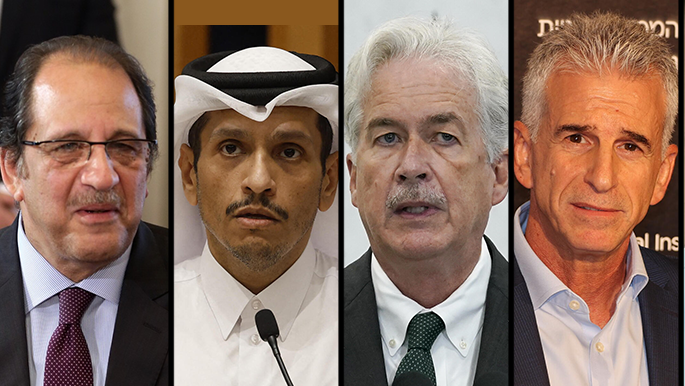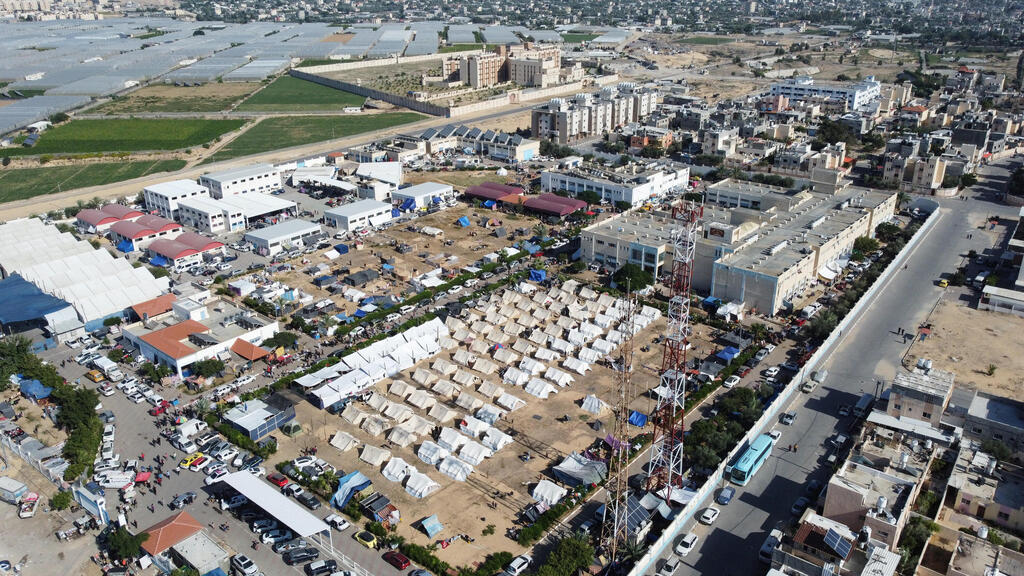The first phase of the hostage release negotiation talks in Cairo ended Tuesday without taking major steps toward an agreement to release hostages and stop the fighting in the Gaza Strip as reported by the Wall Street Journal. An American official said that there was no breakthrough in the negotiations, but noted that they had not "collapsed" either, and Egyptian officials commented that the talks would continue through diplomatic and security channels in the coming days.
Read more:
An Egyptian official told the New York Times that the talks were extended by three more days, while noting that the tone of the talks was positive. After it became known that the Israeli delegation had already left for Israel, an American official said that lower-ranking officials will participate in the talks in the coming days, and will continue to discuss a new framework for the deal. Although some progress has been achieved, the parties are still far from agreeing on the key issue which is releasing terrorists who are imprisoned in Israel in exchange for hostages.
2 View gallery


Egyptian intelligence chief Abbas Kamal, Qatari Prime Minister Mohammed Al Thani, CIA chief William Burns, Mossad Chief David Barnea
(Photos: EPA, AP, KARIM JAAFAR/AFP, Yariv Katz ,Yair Sagi)
Hezbollah-affiliated Lebanese newspaper Al-Akhbar reported that the summit, which was attended by Mossad chief David Barnea, CIA chief William Burns, Egyptian intelligence chief Abbas Kamal and Qatari Prime Minister Mohammed Al Thani, resulted in regression, not progress. According to the terrorist organization-affiliated newspaper, the Israeli delegation withdrew from the outline agreed upon at the Paris summit and came up with a proposal that challenges the current outline.
Israel demanded that all the kidnapped civilians and female soldiers be released, according to the same proportion as the previous deal of one hostage in exchange for three Palestinian prisoners, with the possibility of increasing the number of prisoners. The Israeli delegation also stressed that there would not be a cease-fire, but a temporary truce, during which air traffic would be stopped for six hours a day, as was done in the previous cease-fire. In the talks, it was proposed to increase humanitarian aid to the Gaza Strip without the withdrawal of IDF forces and without granting permission to Gazan residents to move from southern and central Gaza to the north.
Egyptian officials said that the Israeli delegation led by Barnea returned to Israel without finalizing any of the significant gaps in the negotiations, including the duration of the cease-fire and the number of Palestinian prisoners released for each hostage. According to sources, the Israeli representatives reiterated the government's position that the conditions set by Hamas for the deal are unrealistic.
Will a deal postpone a maneuver in Rafah?
The talks in Cairo took place while Israel was preparing to expand its ground operation in Gaza to Rafah, a city that borders Egypt and where, according to the United Nations, there are about 1.4 million Palestinians. Hundreds of thousands of Palestinians moved there when the IDF called on residents to move to the south due to intense fighting in the north at the beginning of the ground operation. Recently, various international officials expressed concern about an attack in Rafah, which will deepen the humanitarian crisis.
During the negotiations in the Egyptian capital, Israeli officials warned that if Hamas does not accept the terms of Israel's temporary cease-fire, the IDF will operate in Rafah. IDF Chief of Staff Lieutenant General Herzi Halevi referred to plans for a large-scale operation in Rafah, despite international warnings that the operation would harm the displaced people there. "I approved plans three times, not because they weren't good enough. The process of approving military plans goes through stages, perfecting itself from time to time. The timing of the action is something we leave to the military command with the political leaders. We know that it will be more complex to fight when there are more than a million people around and another 10,000 Hamas operatives who are the enemy and must be killed."
After the terrorist organization submitted its answer to the outline of the deal formulated at the Paris summit, Netanyahu said that these were delusional demands, claiming that surrendering to them would not lead to the release of hostages. Netanyahu repeated again that "total victory" was "within a touching distance" and would be achieved "within months".
He clarified that "total victory", in his view, also includes the release of the hostages. Hamas demanded the deal be conducted in three phases, each lasting 45 days, and demanded the withdrawal of the IDF from the Gaza Strip and the release of 1,500 Palestinian prisoners, of which 500 were sentenced to a life sentence.




